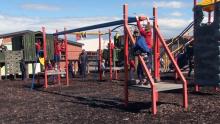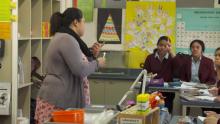Shared ownership
Senior leaders at Invercargill Middle School have put processes in place to ensure that all teachers participate in and contribute to the co-construction of decisions about how best to move forward. The principal describes the approach as ‘change coming from the classroom, not the principals office’.







